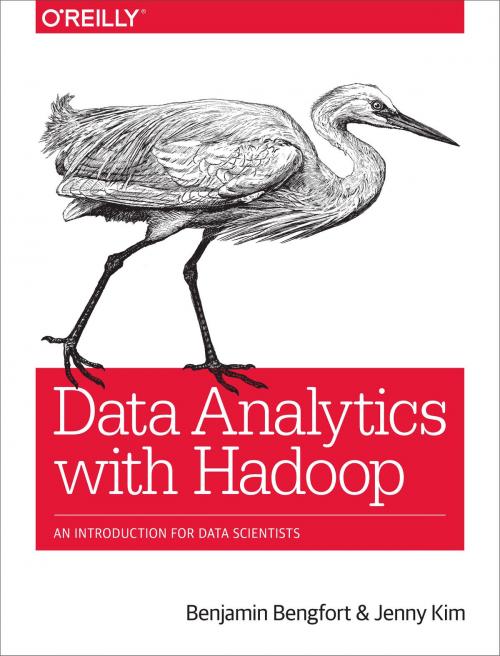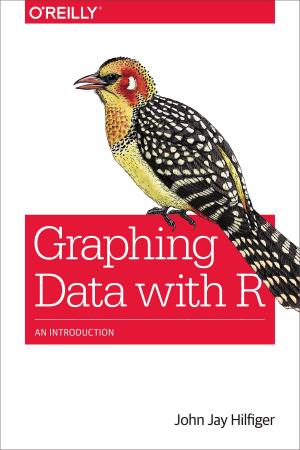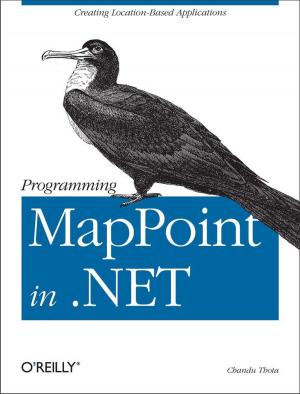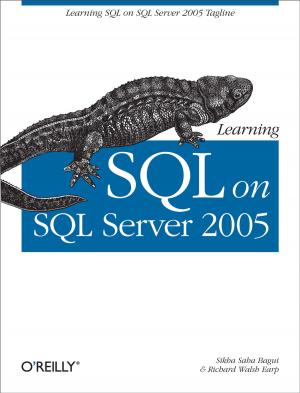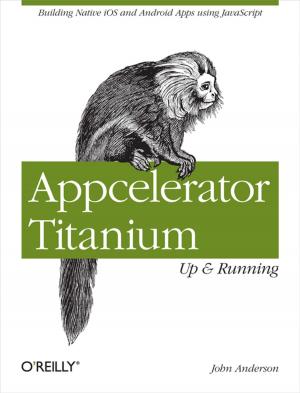Data Analytics with Hadoop
An Introduction for Data Scientists
Nonfiction, Computers, Advanced Computing, Programming, Data Modeling & Design| Author: | Benjamin Bengfort, Jenny Kim | ISBN: | 9781491913758 |
| Publisher: | O'Reilly Media | Publication: | June 1, 2016 |
| Imprint: | O'Reilly Media | Language: | English |
| Author: | Benjamin Bengfort, Jenny Kim |
| ISBN: | 9781491913758 |
| Publisher: | O'Reilly Media |
| Publication: | June 1, 2016 |
| Imprint: | O'Reilly Media |
| Language: | English |
Ready to use statistical and machine-learning techniques across large data sets? This practical guide shows you why the Hadoop ecosystem is perfect for the job. Instead of deployment, operations, or software development usually associated with distributed computing, you’ll focus on particular analyses you can build, the data warehousing techniques that Hadoop provides, and higher order data workflows this framework can produce.
Data scientists and analysts will learn how to perform a wide range of techniques, from writing MapReduce and Spark applications with Python to using advanced modeling and data management with Spark MLlib, Hive, and HBase. You’ll also learn about the analytical processes and data systems available to build and empower data products that can handle—and actually require—huge amounts of data.
- Understand core concepts behind Hadoop and cluster computing
- Use design patterns and parallel analytical algorithms to create distributed data analysis jobs
- Learn about data management, mining, and warehousing in a distributed context using Apache Hive and HBase
- Use Sqoop and Apache Flume to ingest data from relational databases
- Program complex Hadoop and Spark applications with Apache Pig and Spark DataFrames
- Perform machine learning techniques such as classification, clustering, and collaborative filtering with Spark’s MLlib
Ready to use statistical and machine-learning techniques across large data sets? This practical guide shows you why the Hadoop ecosystem is perfect for the job. Instead of deployment, operations, or software development usually associated with distributed computing, you’ll focus on particular analyses you can build, the data warehousing techniques that Hadoop provides, and higher order data workflows this framework can produce.
Data scientists and analysts will learn how to perform a wide range of techniques, from writing MapReduce and Spark applications with Python to using advanced modeling and data management with Spark MLlib, Hive, and HBase. You’ll also learn about the analytical processes and data systems available to build and empower data products that can handle—and actually require—huge amounts of data.
- Understand core concepts behind Hadoop and cluster computing
- Use design patterns and parallel analytical algorithms to create distributed data analysis jobs
- Learn about data management, mining, and warehousing in a distributed context using Apache Hive and HBase
- Use Sqoop and Apache Flume to ingest data from relational databases
- Program complex Hadoop and Spark applications with Apache Pig and Spark DataFrames
- Perform machine learning techniques such as classification, clustering, and collaborative filtering with Spark’s MLlib
